1. Can you tell us about your background and how you became a children's book author? I love to hear the "big break" stories. How did you get yours?
Well, it wasn’t so much of a “big break.” I like to think of it more as a “hairline fracture.” I loved history as a kid but somehow got away from it as I grew up. I ended up as a freelance writer for businesses, writing marketing materials. I took some time off when I had my second child and when it was time to get back into the business, my heart sunk at having to write about boring issues. At the time, Oliver Stone’s movie on Alexander (not recommended, don’t get me started) was coming out and my brother, who is also a writer, got an assignment to write about him. Only one problem: he didn’t know who he was! I ended up doing a lot of the research for him. I started sharing some of what I learned with my kids and they loved the stories. So I said, “Hey, I’ll just write a book about him for kids!”—not knowing how hard it is to get published. It’s a good thing I didn’t know or else I would have talked myself out of it. Alexander the Great Rocks the World came out in 2006 when I was 45. So it’s never to late to follow your passions!
2. You're writing style is so refreshing - lots of hilarious analogies and an infectious tone that is sure to have kid appeal. What are some of your tips for writing engaging history books?
Have fun! And love what you’re writing about. Hopefully, my delight in the topic shines through. Also, it helps to have an immature sense of humor. If it’s outrageous, gross, or funny, I’m all over it! I think developing this style, though, came from the fact that I was telling these stories to kids at first. And you can see the moment you lose their attention. Their eyes wander, then their bodies. I noticed that the more enthusiastic, silly, or dramatic I got, the more I captured their attention. One of the greatest compliments I recently received came from a mom at a signing who said—after my presentation—that her daughter turned to her and announced, “That’s why I love her books so much. She writes just like she talks.”
3. Now let's dish Cleopatra. When I was a kid, I pictured Cleopatra as the royal diva traveling up the nile in her barge while half-naked slaves fanned her with peacock feathers. I am guessing many kids have this image of Cleopatra. But after reading your book, I realized that there was a grain of truth to the Hollywood cliche image...Cleopatra sure knew how to throw a party. Do you think Cleopatra's PR skills kept her in power?
Oh, I love to dish! And there’s definitely a grain of truth to the image of Cleopatra you describe. That image comes from Plutarch in his description of how she arrived for a business meeting with Mark Antony. Girlfriend knew how to make an entrance! But she was so much more than the image. Unfortunately, that little grain took over the entire dish. In truth, she was a complex woman who was a brilliant politician and knew how to “market” her image to her advantage. She would have kicked butt in our media age.
4. I always think writers choose subjects because they remind them of people in their lives. Do you think this is true? If yes, do you have a strong Cleopatra-like role model that inspired you?
In my case, I ended up writing about ancient history because I think it was my first intellectual “love.” I can still remember being in the fourth or fifth grade and opening up an oversized library book filled with images of classical statues. I completely lost my breath. I had never seen anything so beautiful! I wanted to know about the people who could create such beauty. I was smitten with the ancient world at first, not with any particular personality.
5. When I do school visits, I always ask kids if they like history. Usually they try to be polite and throw me a bone by saying "I like Egyptian History." I can't tell you how many times I have heard this! Why do you think this time period in history is so addictive for young readers (and adults)?
Because it’s so dang weird and magical! How could anyone not be fascinated by the people who built the pyramids and mummified their dead so that they could party forever in the afterworld? Also, their artwork was so just so beautiful and unique. So stylized. You can’t help but look at their art or hieroglyphics and wonder if there is some secret magic behind it. Ancient Egypt still has the power to awe. Our society is so cynical, but even adults don’t get embarrassed about their enthusiasm over ancient Egypt. It’s like we all had a silent agreement that Egypt was cool enough to fascinate no matter what our age.
6. I love how you intertwined real life details of daily life into the story (ie. the Buchis Bull, the library, Egyptian jewelry.) It really made the story come alive because the reader could not only see how Cleopatra interacted with her world, but also the common person's point of view. There are so many juicy pieces of history that I don't even know which one to share! So you pick one. What is one of your favorite interesting sidebars from the book about daily life?
Oh man, that’s a tough one because there are so many. However, I’d have to choose the section on mummification because, well, it’s so fascinating and gross! Ancient Egypt had the only religion that I know of that required the body be available for eternal life. No body? No afterlife. You could, in a pinch, have your ka or spirit inhabit a statue but without either, your spirit “disappears.” Besides the gross details of mummification (which all the kids know, by the way), I’m fascinated by how they came to believe what they believed. One quick detail regarding that: archaeologists theorize that the very early Egyptians saw that the bodies they buried in the desert became naturally dessicated/mummified. They took that to mean the gods wanted them that way! Then they saw jackals wandering near these graves, which looked to them as if the jackals were protecting the bodies. And so Anubis, the jackal-headed god of mummification and protection was born.
7. Readers of this site like a good rumor. In your book, you talk about whether or not Cleopatra's son was Caesar’s. What do you personally think?
Oh, I have no doubt that Caesarion was Caesar’s son. Cleopatra was too smart to have risked pairing up with anybody but the most powerful man in Rome. Everything she did was in the service of preserving Egypt’s survival and independence. The biggest rumor about Cleopatra is basically that she was a harlot. Most scholars now believe she had only two lovers her whole life—Julius Caesar and Mark Antony. The rest were vile rumors meant to discredit her.
(Which always puzzles me, by the way. Why would having multiple lovers even matter? It’s a plus when we’re talking about men!) Some people throw out the fact that Cleopatra had married her brothers as proof of her supposed debauchery. But the simple fact was, the law required her to be married to a member of the royal family in order to rule. She did what she had to do, but it doesn’t mean she ever slept with them—especially since each brother was pre-pubescent at the time of the marriage and then died soon after. Plus, I’m sure that the brothers’ propensity for wanting big sis’ dead didn’t help matters either.
But what I find most interesting about all the rumors is that it was the Romans who set up the tendency to take women down by talking about their sex lives: Hate or scared by a powerful woman? That’s easy—just call her a slut!
8. In your book, you tackle the tough issue of why Cleopatra was so seductive. Everyone (including me) is obsessed with what Cleopatra looked like. But as you point out in your book, "Cleopatra Rules" not because she was the ideal beauty. Obviously, this is a powerful message for teens obsessed with the size of their butt. Is there anyone in Hollywood who you feel embodies Cleopatra's seductive powers?
Above: Cleopatra's facial reconstruction.
I’m not sure there IS anyone in Hollywood who captures Cleopatra’s powers of fascination simply because Hollywood is all about external beauty. Cleopatra’s attraction was her charisma—her intelligence (she spoke more than seven languages), wit, power and self-confidence. Today, if a woman comes across as self-confident or powerful in Hollywood, she is immediately called a bitch or slut. (Ah, that Roman legacy.)
The only Hollywood person that I can think of that comes close to having that sense of charismatic power and self-confidence might be Queen Latifah. She’s not what you would call a typical beauty but I imagine that when she walks into a room, few can keep their eyes away from her. The only other Hollywood actress that has that “I-don’t-give-a-darn-what-you-think-of-me” persona is Angelina Jolie. Now I hate to even bring up her name because of her stunning beauty, but again, her confidence and fearlessness makes her even more fascinating. Jolie, of course, has been slated to play Cleopatra in an upcoming movie and I’m very unhappy about it because Jolie will play her as a great beauty and seductress (how could she do otherwise?). And the Roman view of Cleo as a scheming seductress rather than brilliant politician will be yet again perpetuated. I think it would have been way more interesting to have a less-than-beautiful actress play her. But you’d be hard-pressed to find anybody in Hollywood with that kind of power and presence—men included!
9. Lastly, a question I ask everyone who visits the Raucous Royals - if you could invite any famous historical person to dinner, who would it be?
Any one of the ancient queens that got torn down for being powerful fascinate me, and that includes Cleopatra. But I think I might want a conversation with the female pharaoh Hatshepsut because her successor tried to erase her 20-year rule. We have nothing on her but clearly she must have been amazing to hold the throne by herself for that long. I’d love to know how she did it.
Wait, no…maybe Boudicca, the ancient warrior queen that demolished several Roman legions and almost succeeded in kicking Rome out of Britain. It was because of her that the Romans destroyed all vestiges of Druidism. She was probably a Druid priestess herself….But then again, there’s Queen Zenobia of Palmyra (ancient Syria) who…oh, never mind. Clearly, I can’t choose!
Thank you Vicky for stopping by. Now, I think I need to reread your book to get up to speed on my mummification knowledge.

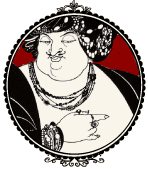

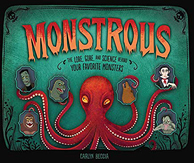
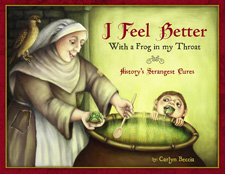
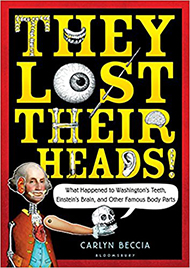


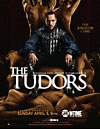
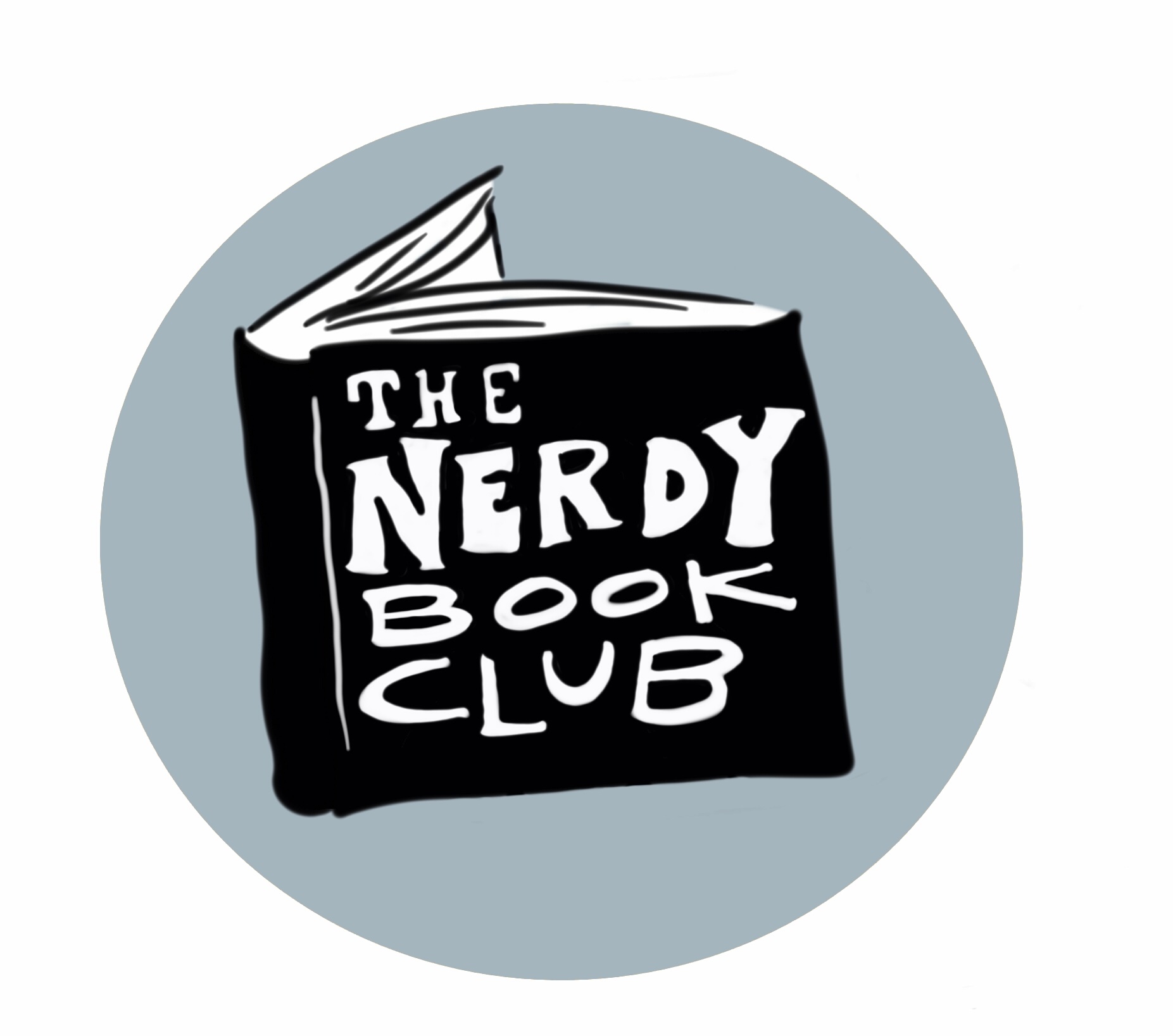
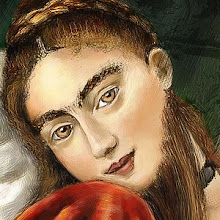
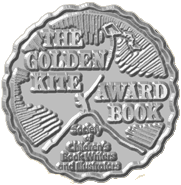



5 comments:
Super interview Carlyn and Vicky!
Good to hear that background story of how Vicky came to be writing in the first place. Very inspiring!
I think you are all very brave to put up with publishers!
H
Wonderful interview. I confess that Cleopatra is one of my favorite women. It was really hard to get her story down to 6 pages for Scandalous Women. I envy you Vicky getting to do a whole book!
Thanks for interviewing me, Carlyn! Being the history nerd that I am, I have to address the photo of the reconstruction you included. It was created for a BBC show but, obviously, implies that Cleopatra was of African origin. Not true. She was Greek (the last of the Greek Ptolemy line). The young woman on the cover of my book, to me, embodies that Mediterranean/Middle-Eastern look that I imagine Cleopatra had (the young woman happens to be Egyptian/Lebanese). People tend to project their ideals of beauty onto Cleo so we have everything from the blond-blue eyed Cleos of the Renaissance to the African conceptions of modern reconstructionist. But in the end, Girlfriend likely had olive skin, dark eyes and black hair...
that's funny because she looks so Greek to me, but now that I look at it, I guess you could think that the facial reconstruction is of African origin.
I love the cover of your book! Thank god your art director didn't do another decapitated woman. So sick of covers with the head not showing.
Fabulous interview -- this looks like a really delightful book! So pleased to have Cleopatra's reputation restored!
Post a Comment